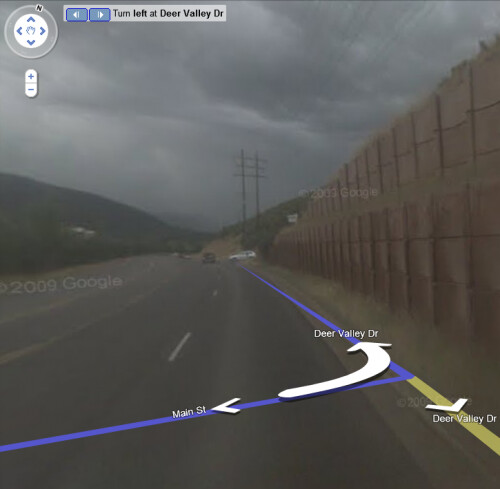If Microsoft Shuts Down Google Maps In Germany, How Does That Benefit The Public?
from the monopolies-deemed-harmful dept
Most sane human beings have stopped trying to keep up with the interwined legal actions arising out of the smartphone patent wars between Apple, Google, Motorola, Nokia, Microsoft and all the rest. The cases, though, are still grinding through the courts, which periodically throw out their verdicts. According to Florian Mueller, one such decision in Germany is imminent:
Judge Dr. Matthias Zigann of the Munich I Regional Court just told Google and its Motorola Mobility subsidiary in no uncertain terms that his court is at this point (prior to counsel's argument on claim construction, infringement and validity) inclined to hold Google Inc., its subsidiary Motorola Mobility LLC and MMI's German subsidiary liable for infringement of a key Microsoft patent, EP0845124 on a "computer system for identifying local resources and method therefor", which is the European equivalent of U.S. Patent No. 6,240,360.
Here's that EPO patent:
A map of the area of a client computer (10) is requested from a map server (11). Information relating to a place of interest is requested from an information server (12) by the client computer (10). The information is superimposed or overlaid on a map image at a position on the map image corresponding to the location of the place of interest on the map. The information (or "overlay") server (12) may contain details of, for example, hotels, restaurants, shops or the like, associated with the geographical coordinates of each location. The map server (11) contains map data, including coordinate data representing the spatial coordinates of at least one point on the area represented by the map.
As the claims make clear, it's exactly what any half-way competent engineer would come up with given the task of providing certain kinds of information local to a geographical location. Moreover, it is of course implemented in software; given that Article 52 of the European Patent Convention explicitly excludes "programs for computers" from patentability, the fact that the EPO granted a patent here is an early example of how it circumvented that exclusion because a computer was used to run that software (well, doh.)
There's another problem with the patent, as Mueller's post makes clear:
Microsoft is seeking, and now very likely to obtain, a German patent injunction against the Google Maps service, the Google Maps Android client app, and web browsers providing access to Google Maps. In order to comply with the injunction that looms large, Google would have to disable access to Google Maps from computers using a German IP address, discontinue shipping the Google Maps Android app in the German market, and distribute web browsers in Germany only if they block access to Google Maps in a way comparable to Internet filters used for the purpose of parental controls.
If that turns out to be the case, and Google isn't able to code around the problem, that means that the patent was ridiculously over-broad -- essentially, it's a patent on all implementations of the basic idea. That's unlike traditional patents, where alternative, non-infringing inventions can be devised to solve a given problem.
Moreover, Microsoft can't fall back on its usual justification that it spent years of research and huge amounts of money developing this "breakthrough" idea, and therefore deserves its sweeping monopoly. According to both the European and US filings, the original patent was granted to Sean Phelan, based in London. Here's the background:
Sean started Multimap.com as a bootstrap start-up in his spare bedroom in 1995 and built it into one of the 10 most popular British web services, with revenues of £12M and profits of £1M
And good for him. But buying his patent doesn't give Microsoft -- or anyone -- the right to lock out competitors from the entire online map space. If Mueller is right, and a broad injunction is granted against Google Maps, the net result will be millions of Germans unable to use this popular service in a Web browser or on their smartphones. In what way does that benefit society or promote innovation?
Sean formed Multimap.com to bring together his lifelong love of sailing and navigation with his experience with the internet and web-based technology. Through Multimap, Sean realised his vision of services based on the integration of navigation, wireless communications and the web. He is one of Europe's original internet entrepreneurs, with a unique combination of business and technical skills. In December 2007 the company was acquired by Microsoft for £30 million, cementing its position in the ranks of Britain's internet success stories.
Follow me @glynmoody on Twitter or identi.ca, and on Google+
Filed Under: germany, google maps, patents, public, software patents
Companies: google, microsoft







